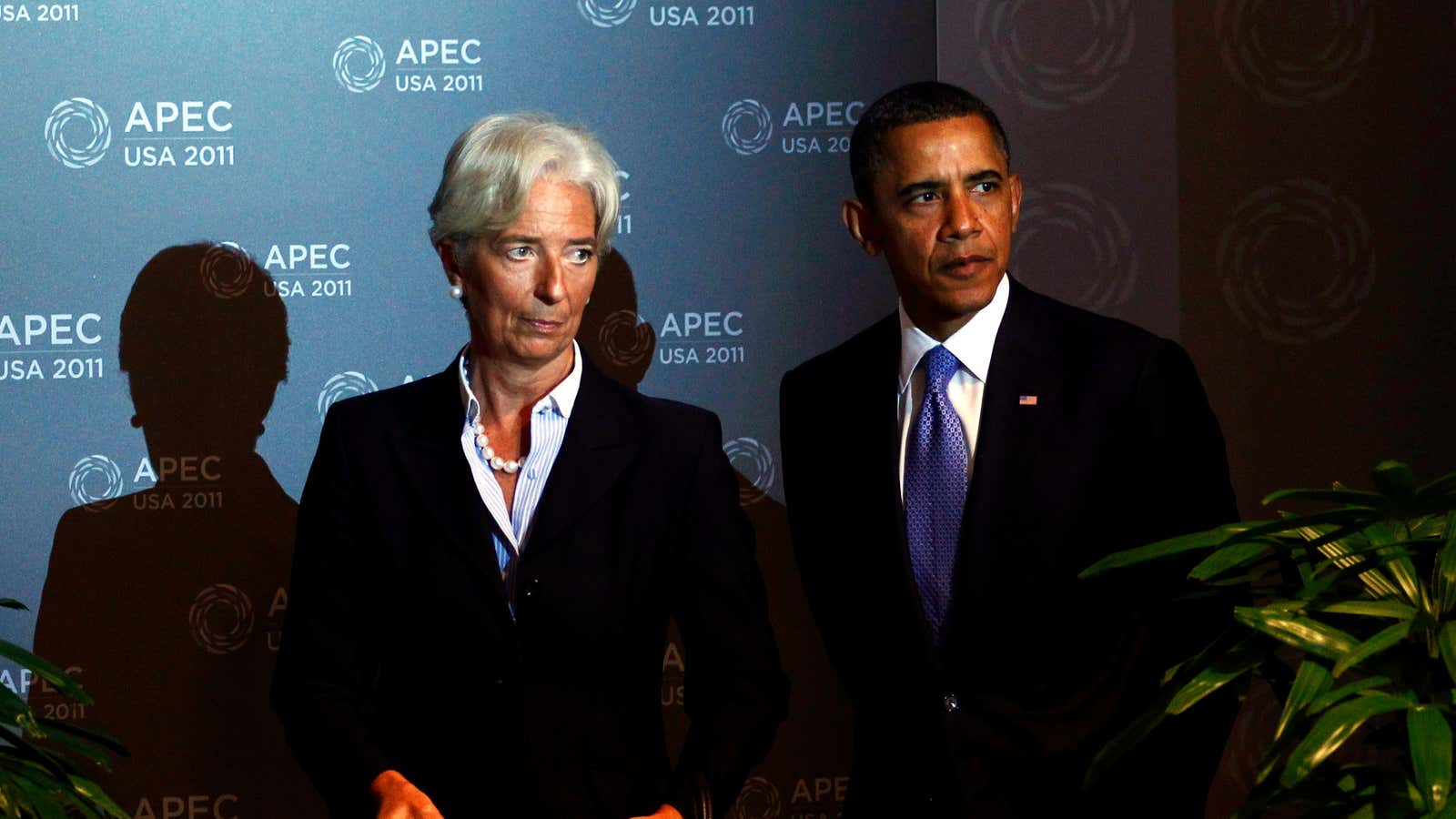The lauded US fiscal agreement that Congress reached earlier this month succeeded largely because it left so many important and controversial issues to one side: Taxes, health care, unemployment insurance. Now, you can add the maintenance of the international financial system to that list.
The White House is pressing Congress to spend $315 million to guarantee $63 billion of the International Monetary Fund’s (IMF) finances, as part of a 2010 reform of the fund’s governing mechanisms. (The cost of the guarantee is low because of the IMF’s excellent credit rating and strong record as a lender.) Congress is replying that there are a lot of priorities this year, and maybe these global currency people will have to sit and stew.
After the 2008 financial crisis, emerging markets like Brazil, Russia, India and China asked for a say in the running of the IMF that reflected their growing stature in the global economy. Many are suspicious that wealthy countries get a better deal from the IMF—Greece, for instance, borrowed far more than was typically allowed from the fund. And there is just a broader need at the IMF for more money to keep up with the growing global economy: Because of shortfalls in its primary loan facility, an ad hoc fund called “New Arrangements to Borrow” (NAB) helped see troubled economies through the financial crisis. Critics said it must be formalized and integrated into normal IMF practice.
And so in 2010, the IMF’s board struck a deal very favorable to the US: The US would raise its regular funding of the IMF by the same amount that it cut funding from the ad hoc NAB, preserving its voting power and veto on the fund’s decisions without increasing its financial commitments. Meanwhile, other countries, especially the BRICs, would pay more to the IMF, and replace smaller European economies on the fund’s board.
But the US has never ratified that deal. Republican lawmakers, skeptical of spending and international institutions in the first place, have never been eager to fund what they see as over-generous bailouts of troubled foreign countries. (Never mind asking the residents of any troubled economy that has received the IMF’s attentions how bailed-out they feel under punishing austerity policies and with high rates of joblessness.) Holding up ratification is a chance for them to express their complaints about both spending and the IMF, but it robs the IMF of its biggest funder and prevents other countries from filling in the gap.
Treasury secretary Jack Lew made a pragmatic case (pdf) to Congress earlier this month: The IMF’s actions protect major trading partners for the US. While the handling of the euro crisis was hardly brilliant, the IMF’s role helped keep America’s largest trading partner from total collapse, and may be needed to do so in the future.
Now emerging markets are looking shakier than they have in some time, with currency troubles and capital outflows striking nearly across the board, while China’s central bank pumps cash into its own shaky markets. Mistrust for the IMF has lead the BRICs to try to build their own financial war chest, but it is likely to prove inadequate. While the IMF learned at least some lessons from the 2008 crisis and built them into its 2010 reforms, they will be for naught if the US Congress fails to rubber-stamp them in time for the next shock.
